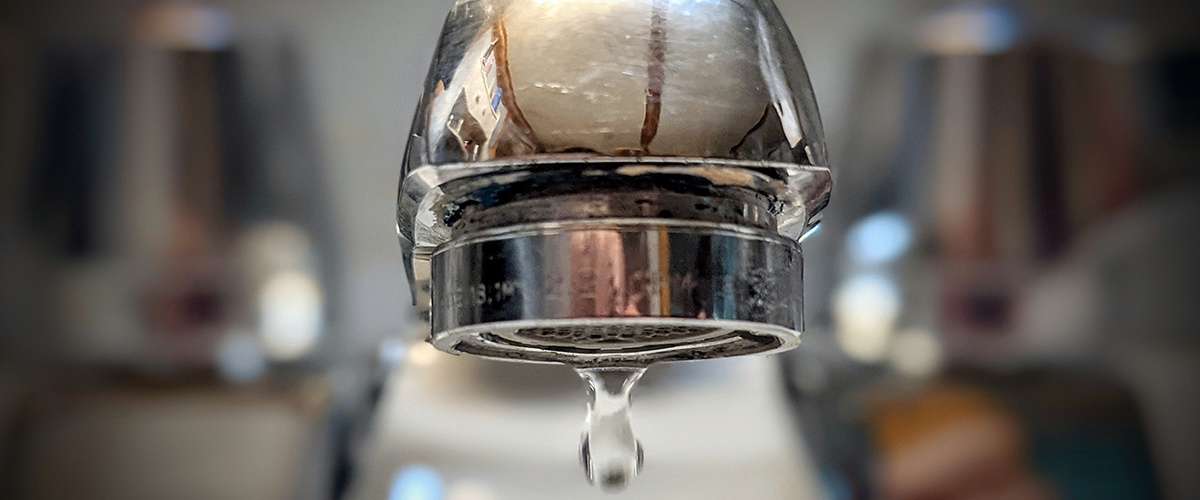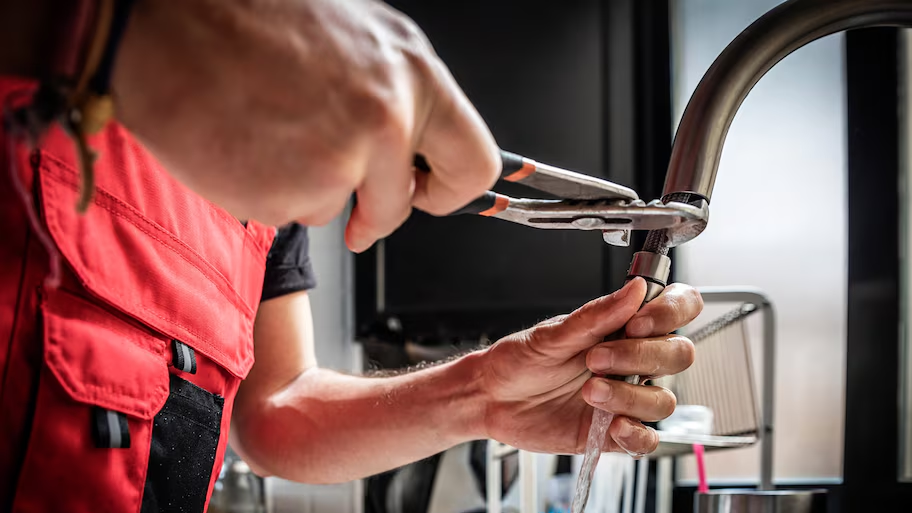Which It's Critical to Resolve a Broken Faucet
Which It's Critical to Resolve a Broken Faucet
Blog Article
Each person maintains their personal perception involving Why Are My Faucets Dripping (And Can I Fix It Myself)?.

Trickling faucets could look like a small inconvenience, however their influence goes beyond simply the annoyance of the noise. From drainage to sustaining unneeded financial prices and wellness risks, disregarding a leaking faucet can cause various consequences. In this article, we'll delve into why it's important to address this common household problem quickly and efficiently.
Wastage of Water
Ecological Impact
Dripping faucets contribute considerably to water wastefulness. According to the Environmental Protection Agency (EPA), a solitary tap dripping at one drip per second can squander more than 3,000 gallons of water annually. This not only pressures water sources yet likewise impacts communities and wild animals based on them.
Step-by-Step Guide to Repairing a Dripping Faucet
Devices Called for
Before attempting to deal with a trickling faucet, gather the required devices, consisting of an adjustable wrench, screwdrivers, replacement parts (such as washing machines or cartridges), and plumber's tape.
Typical Tap Issues and Their Solutions
Determine the type of faucet and the details issue creating the drip. Common troubles include worn-out washing machines, corroded shutoff seats, or faulty O-rings. Refer to supplier instructions or on the internet tutorials for detailed advice on repair work.
Financial Expenses
Raised Water Bills
Beyond the environmental impact, dripping faucets can blow up water costs substantially. The gathered wastefulness with time converts right into higher utility costs, which could have been stayed clear of with prompt fixings.
Prospective Residential Property Damages
Moreover, long term trickling can bring about harm to components and surfaces surrounding the tap. Water build-up can cause discoloration, rust, and even architectural issues if left neglected, leading to additional repair work prices.
Health and wellness Concerns
Mold And Mildew and Mildew Growth
The consistent visibility of moisture from a dripping faucet creates an optimal setting for mold and mildew and mold growth. These fungi not only endanger interior air quality but likewise posture health threats, especially for individuals with breathing problems or allergic reactions.
Waterborne Diseases
Stationary water in dripping taps can come to be a breeding place for microorganisms and other pathogens, enhancing the danger of waterborne illness. Pollutants such as Legionella germs grow in stationary water, potentially causing severe health problems when ingested or breathed in.
Do it yourself vs. Expert Repair work
Pros and Cons of Do It Yourself Repair Service
While some may try to repair a trickling faucet themselves, do it yourself repairs feature their own collection of challenges. Without appropriate expertise and devices, DIY attempts can aggravate the concern or cause incomplete repairs, prolonging the issue.
Advantages of Working With an Expert Plumber
Working with a specialist plumber makes sure that the underlying source of the leaking tap is resolved effectively. Plumbing technicians have the expertise and equipment to detect and fix tap problems effectively, conserving time and minimizing the threat of more damages.
Environmental Responsibility
Specific Payment to Conservation
Taking responsibility for dealing with leaking faucets straightens with wider initiatives toward water preservation and environmental sustainability. Every individual's activities collectively make a substantial impact on maintaining precious sources.
Sustainable Living Practices
By focusing on punctual repairs and embracing water-saving behaviors, individuals contribute to lasting living methods that profit both existing and future generations.
Preventive Measures
Routine Upkeep Tips
To stop trickling faucets, carry out routine upkeep such as cleaning aerators, inspecting for leaks, and replacing worn-out parts quickly. Furthermore, think about mounting water-saving tools or updating to extra reliable fixtures.
Importance of Prompt Repair Works
Attending to leaking faucets as quickly as they're observed avoids further water wastefulness and prospective damage, inevitably saving both water and cash over time.
Impact on Residential Property Worth
Understanding of Well-Maintained Property
Keeping a residential property in good condition, including attending to maintenance issues like dripping taps, boosts its perceived value and desirability among possible buyers or tenants.
Impact on Resale Value
Features with well-kept plumbing fixtures, consisting of taps, command greater resale worths in the realty market. Resolving dripping faucets can contribute to a favorable impact throughout home assessments and settlements.
Conclusion
Addressing a dripping tap exceeds mere ease; it's a crucial action toward preserving water, lowering monetary prices, and securing health and property. Whether with do it yourself repair services or professional help, taking action to take care of trickling taps is a small yet impactful method to promote accountable stewardship of resources and contribute to a healthier, much more sustainable future.
How to Fix a Leaky Faucet: Step-by-Step Repair Guide
A leaky faucet may seem like a simple annoyance, but if it's not fixed promptly, that leak could cost hundreds to potentially thousands. From water damage to mold, mildew, and high water bills, even a tiny leak can be catastrophic if left unattended. Damage like this can even affect the overall value of your home, so it's important to take the right approach for leaky faucet repair. You may need the help of a plumber in some cases, but we've got a few tips you can try on how to fix a leaky faucet before calling the pros.
Four Faucet Types
When you're learning how to fix a leaky faucet, the first step is knowing what kind of faucet you're working with! There are four common types.
Cartridge Faucets
Cartridge faucets come in one- or two-handled varieties. In one-handled cartridge faucets, hot and cold water combines in a single cartridge. In the two-handled versions, hot and cold water are controlled separately and mixed in the faucet.
Ball Faucets
Ball faucets have a single lever you push up and down to adjust the pressure and rotate to change the temperature. A slotted metal ball controls the amount of water allowed into the spout.
Compression Washer Faucets
They're the oldest type of faucet, but they're still used in many homes — especially older ones. Compression faucets have two separate handles that, when turned, raise or lower the washer that seals a water valve. This valve stops water from flowing through the faucet when it is turned off.
Disc Faucets
Disc faucets rarely need to be repaired due to their maintenance-free design. The water flow is controlled by two discs — the upper one raises and lowers against a fixed lower disc, creating a watertight seal. If your disc faucet starts leaking, you may need to replace the seals or clean residue buildup from the inlets.
Fixing a Leaky Faucet
Step 1: Turn Off the Water
Whether you're learning how to fix a leaky bathtub faucet or how to fix a leaky kitchen faucet, always turn off the water supply to your working area when you're fixing a leak. The last thing you want is a flood added to your list of things to fix.
Look for the shutoff valves below your sink or around the tub and turn them clockwise to stop the water flow. If your faucet doesn't have shutoff valves, you may need to turn off the water for the whole house. Check to make sure it's off by turning the faucet on. If nothing comes out, you're ready to start the repair.
Step 2: Take Apart the Faucet
How you disassemble your faucet depends on the type of fixture you have. You can use a flathead screwdriver to remove the caps on top of the handle or handles for cartridge and compression faucets. Inside, you should see handle screws. Unscrew these with a screwdriver to remove the handle.
Disc- and ball-style faucets will typically have an inlet screw near the handle, and removing that will reveal the interior of the faucet.
Detach the Valve Stem
For cartridge- and compression-style faucets, you'll see the inner valve stem or cartridge once you remove the faucet handles. If you have a compression faucet, unscrew the brass valve stem. If you have a cartridge faucet, pull out the cartridge. If your cartridge has been in place for a while, it may require some tools or extra force to remove it due to mineral deposits.
Examine and Replace Parts
Once you've removed the parts, check them out to confirm what needs to be replaced. You may see corroded rubber washers, O-rings, stems, or cartridges. On a ball-style faucet, check the seats and springs for damage.
If you need to repair a leaky disc faucet, check the inlet and seals on the lower disc.
Once you determine what parts must be replaced, visit your local hardware store. Bring the damaged parts with you to ensure you can purchase the correct components to replace them.
Clean Valves and Faucet Cavity
If you've removed a stem or cartridge, you may notice mineral buildup in the faucet's threads. Use white vinegar to clean the valve seat by soaking it for a few minutes, then scrub it away with a soft toothbrush and rinse with warm water. You can also clean the interior of the faucet in the same way.
Reassemble the Faucet
Once your faucet is cleaned and the required parts have been replaced, it's time to reassemble it. Put the pieces back together and slowly turn the water supply back on. Doing this slowly is crucial because too much initial water pressure can damage the new hardware you've just installed.
https://homewarranty.firstam.com/blog/how-to-fix-leaky-faucet

I am very focused on Why Are My Faucets Dripping (And Can I Fix It Myself)? and I am praying you liked my blog post. Don't hesitate to take a moment to distribute this blog post if you liked it. Thank you for going through it.
Report this page